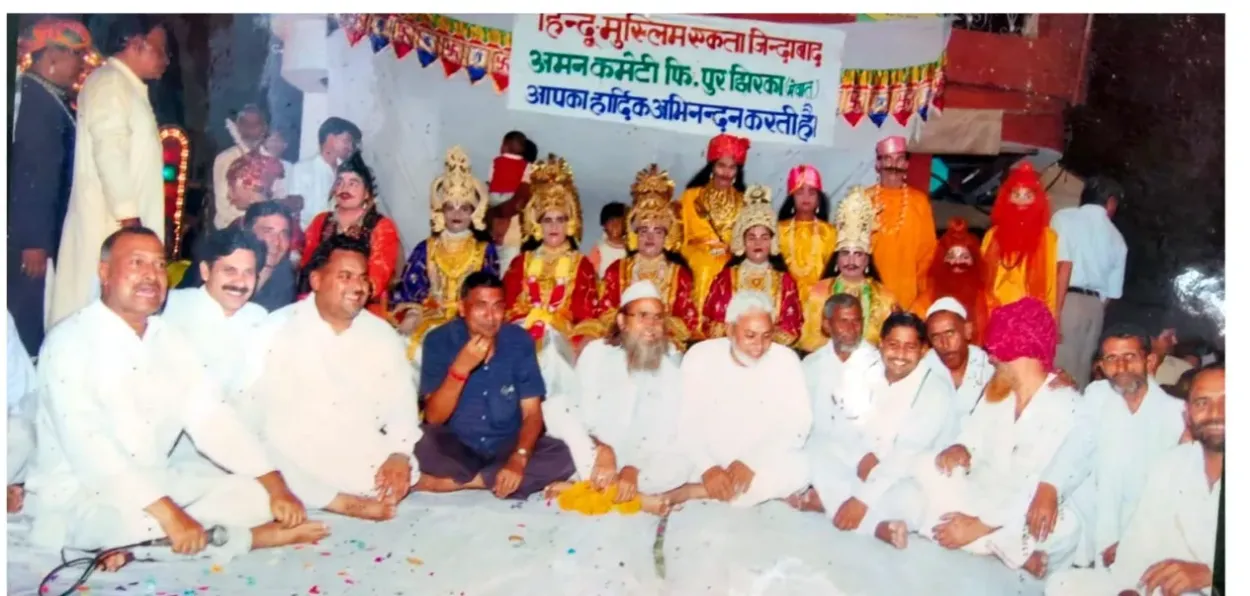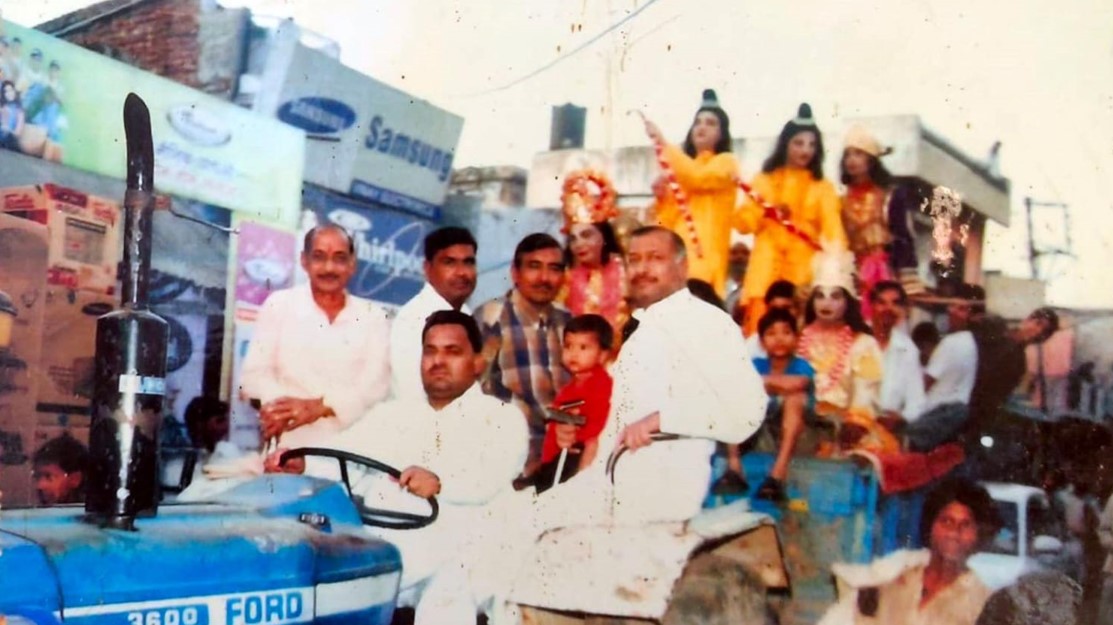
Yunus Alvi/Mewat
It is no exaggeration to say that Muslims are an integral part of Ramlila - stage show on Lord Ram's life organised during nine days of Navratri across north India- in the Mewat region of Haryana. For decades, Muslim artists have been majorly involved in decorating the stage and lending music to the drama; they also play key characters.
More than quantifying the Muslims' association with Ramlila shows, it's their spirit that prioritizes culture and amity over religion.
The Shri Ramlila Committee of Firozpur Jhirka village, where Ramlila is attended by Muslim patrons and artists, is a prime example of this unique tradition. Azad Mohammad, a Muslim and a former minister, has been the Patron of the Ramlila committee since 1996.
Azad Mohammad is also a life member of the Mewat Area Gaushala Committee and president of the Aman Committee Mewat, which includes people from all religions. This committee is committed to protecting and strengthening the brotherhood of Mewat.
Naresh Garg, the committee's former director, recalls, "I can recall from my childhood that our Muslim brothers played instruments in the Ramleela drama. I recall the names of the Fazru harmonium and the Asu dholak."
During the Ram Barat - an episode in the drama when Ram comes to Ayodhya to wed Sita - Muslims warmly welcome Lord Ram with garlands of flowers."
He recalls that on many occasions, Azad Mohammad becomes the charioteer of Lord Ram and enlivens the show further. "This scene demonstrates that Ramleela in Mewat is not just a religious drama, but a community celebration in which everyone participates wholeheartedly."
The Ramleela of Pingawan village also exemplifies this brotherhood. According to Radha Raman Natak Mandal President Shekhar Singla, for decades, Muslim artists Waheeda, Karim Khan, and Khillu Khan have been playing different roles in the stage show. In particular, Khillu Khan has been active in every event for 50 years, demonstrating his deep devotion and love for this tradition.
Krishna Arya, a resident of Punhana, also recounts old stories from his Ramleela. He explains that Hukum Khan and Zakir Khan played instruments in his Ramleela for a long time.

Azad Mohammad plying the tractor with Lord Ram as groom in Ramleela
Even today, Yasin Khan carries forward this legacy by playing the Nagada. However, he also admits that the number of spectators has dwindled in the modern era. While thousands once flocked to watch Ramlieea, the world of mobile phones and the internet has now distanced people from traditions.
These inclusive traditions of Mewat get amplified during the cultural events as the Meo community considers itself Suryavanshi and Chandravanshi, and Lord Krishna as their ancestor.
During the Partition of 1947, when communal violence was at its peak across the country, Mewat was peaceful. The people here protected each other.
The locals recall the partition days and feel proud about maintaining peace while many other areas burned with communal hate and violence.
Hindus and Muslims have common surnames (family names) such as the Dagar, Tomar, Saharawat, and Badgujar.
Meo Muslims follow many Hindu traditions like Bhaat and Chhuchhak during weddings and other social occasions. This brotherhood is also cemented by the fact that 12 of the 52 Hindu Khap Pals (family members) belong to the Muslim Meo community.
Ram Barat and Azad Mohammad driving a tractor in Firozpur Jhirka, Mewat.
Azad Mohammad, a former Haryana minister and deputy speaker, considers this brotherhood a heritage. He says, "The brotherhood of Mewat is centuries old. Anti-social elements have tried to break it many times, but they never succeeded." He himself is proof that humanity is greater than religion.
He explains, "Whenever there is an attempt to harm brotherhood, the Aman Committee stands at the forefront."
ALSO READ: Shakir Ali revived the miniature painting art of Rajasthan
He believes that the Meo community's Krishna lineage and the blending of Hindu and Muslim clans are the heritage that has never allowed this brotherhood to break.
Mewat, with a population of approximately 7 million, is spread across eight districts of Rajasthan, Haryana, Uttar Pradesh, and Delhi. The people here consider Krishna their ancestor.
